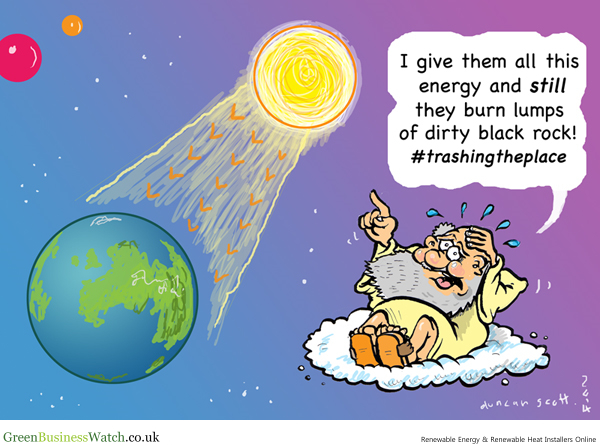wil
UNeyeR1
Religions don't seem to be replaced by science, they become myths when a new cult forms around a new religion...
Here's my view, from the outside as it were, as an atheist fascinated by religions but not a member of any religious group:We know now how the sun works thanks to science, so I wonder why some religions die out when scientific evidence piles up while others do not.
When we want meaning from a star we get astrology.

That is our human frailty, wanting meaning where there is none so we invent it.
I believe our frailty, rightfully acknowledged, is our secret superpower.Do I sense a bit of nihilism here?
Will heads for the dictionary....and gasps! No, I'm a fellow follower of brother John birch I belong to the Baptist Antioch church, I ain't even got a garage you can go home and ask my wife... (Steering brain back on track) I get a lot from attending church and catching up with services online when I miss. However just like politics, I am perfectly comfortable pointing out fallacy and foibles deemed sacred by many.Do I sense a bit of nihilism here?
If G!d wanted us to use solar power he would have made a nuclear fusion reactor available to all.When we want meaning from a star, we get funny memes about smarter ways to harness energy.

Only up to chapter six in Beyond Biocentrism....sheeshTerry Pratchett, may his memory last a very long time, on this very subject. It's from his book Hogfather
This feels a bit silly to ask, but what is the difference between religion and myth? Weren't ancient myths also part of a religious belief system?
If you think of a myth as a narrative, then the myths of antiquity were the fruit of contemplating the big questions, where did we come from? stuff like that. They also encompass often profound and complex moral issues ... the Greek myths, for example, were a handbook of psychodynamic understandings, and many of the terms and the ideas contained therein are still valid today.This feels a bit silly to ask, but what is the difference between religion and myth? Weren't ancient myths also part of a religious belief system?
I'm with you on that, although I would not say I hate the term, but rather have some sympathy (in the 'they cannot help it) sense, for those who try to 'reduce, ridicule and trivialize' religion, especially for those who, by so doing, avoid the big questions and make it easier to dismiss.I tend to hate the word "mythology" because it tries to reduce, ridicule and trivialize the religions of the ancients.
I would agree if that's all that people think there is to the ancient belief systems.But "mythology", I consider an abhorrent word to refer to ancient religions...
Any also that myth-making is alive and well! We know next to nothing about traditions such as wicca, but everyone buys into the inventions of a middle class Englishman who single-handedly laid the foundations of its contemporary invention.If pagan/magical revival of the 19th-21st century has told us anything - it's that there is a very large appeal still to be had of these ancient religious traditions and there is a heap of knowledge (on many levels) to be ascertained from what remnants we do have left from them.
Yep. There's a load of scientific evidence, and a load of upper-class, white, male elitist myth-making in its interpretation!That whole Darwinian idea of 'progress' is pretty damning really, it's very much the flavor of the times though.
Maybe not, but it is based on experienceAnd therein is the line - Myth isn’t rooted in or based on fact.
Nope. Science and religion are two quite different and exclusive fields. No authentic religion has any dependence on science for its validation, any more than science depends on religious doctrine.We know now how the sun works thanks to science, so I wonder why some religions die out when scientific evidence piles up while others do not.
Or learn from?I think there is not a single myth that I like or enjoy.
We know next to nothing about traditions such as wicca, but everyone buys into the inventions of a middle class Englishman who single-handedly laid the foundations of its contemporary invention.

I believe our frailty, rightfully acknowledged, is our secret superpower.
Anyway, I want to quote Terry Pratchett, may his memory last a very long time, on this very subject. It's from his book Hogfather, and if you haven't read it, this is a bit of a spoiler, so go, read it first. Really good fantasy story, with some really interesting and fairly deep thoughts splinkled in here and there.
Here it goes. All-Caps is always the character of Death speaking. It is a dialogue between Susan and Death.
WHAT WOULD HAVE HAPPENED IF YOU HADN'T SAVED HIM?
"Yes! The sun would have risen just the same, yes?"
NO.
"Oh, come on. You can't expect me to believe that. It's an astronomical fact."
THE SUN WOULD NOT HAVE RISEN.
She turned on him.
"It's been a long night, Grandfather! I'm tired and I need a bath! I don't need silliness!"
THE SUN WOULD NOT HAVE RISEN.
"Really? Then what would have happened, pray?"
A MERE BALL OF FLAMING GAS WOULD HAVE ILLUMINATED THE WORLD.
The passage continues some more, exploring a lot of good questions.
